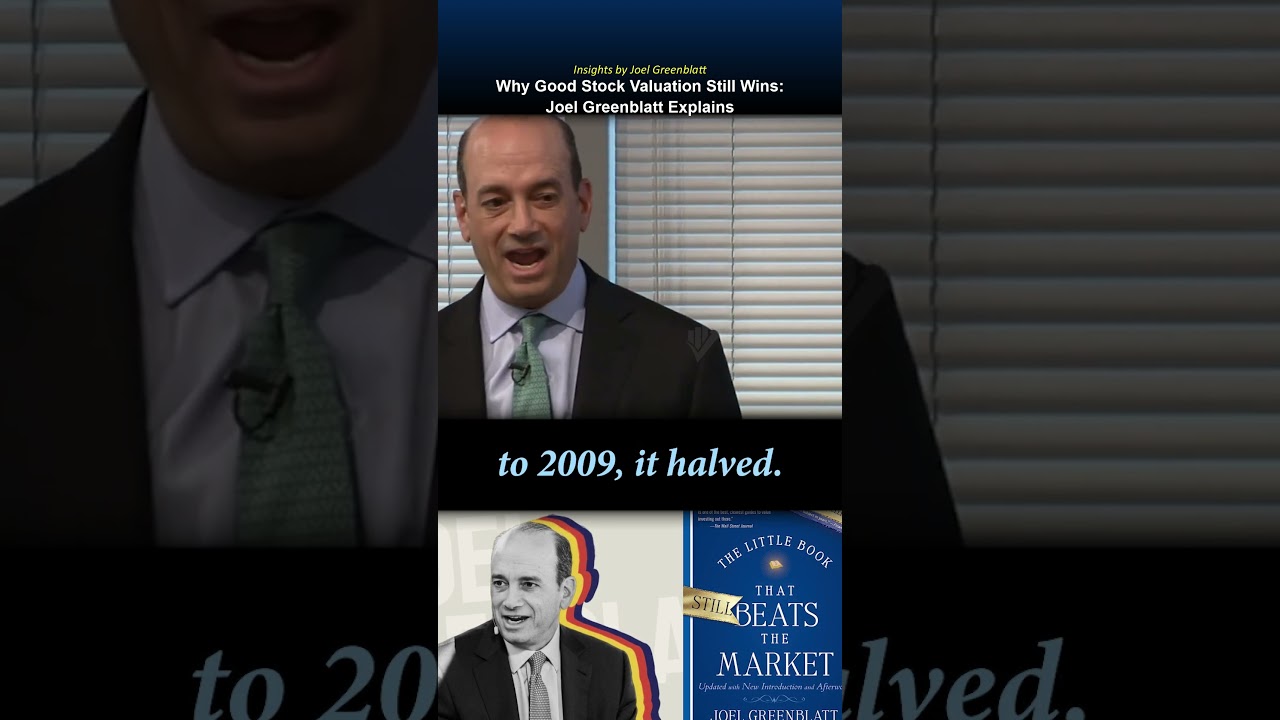Why Good Stock Valuation Still Wins: Joel Greenblatt Explains
Why Good Stock Valuation Still Wins – Joel Greenblatt Explains
In a world saturated with data and advanced computing, the question arises: Does fundamental stock valuation still hold its weight? Joel Greenblatt, a renowned investor and academic, addresses this very question in a compelling discussion. He emphasizes that despite the increased complexity and competition in the market, understanding the underlying value of a business remains paramount for successful investing.
Before diving deeper into the details, watch the video below to gain a comprehensive understanding of Greenblatt’s perspective:
The Ever-Changing Market and Investor Psychology
Greenblatt uses a historical perspective to illustrate his point. He takes his students back to when they learned to read, comparing the market’s behavior since then. Specifically, he references the S&P 500’s dramatic fluctuations over roughly two decades. The S&P 500 doubled, then halved, doubled again, halved again, and then tripled. These cycles demonstrate one crucial thing: investor sentiment can be extremely volatile.
“People are still crazy,” Greenblatt quips, highlighting the emotional rollercoaster that drives market swings. He stresses that these dramatic shifts occur even within the S&P 500, an average of 500 stocks. Underlying this average is a significant dispersion – some stocks are heavily favored, while others are severely out of favor. This constant flux creates opportunities for investors who can accurately assess a company’s intrinsic value.
Unveiling Opportunities Beneath the Surface
The key takeaway here is that the overall market performance often masks the substantial volatility and mispricing occurring at the individual stock level. By focusing on individual company valuations, investors can identify discrepancies between price and value and capitalize on these opportunities.
The Core Principle: Understanding What You’re Buying
Greenblatt stresses that stocks are not simply pieces of paper that bounce up and down based on complex ratios. Instead, they represent ownership shares in real businesses. Therefore, the focus should be on understanding the underlying business’s financials, competitive advantages, and long-term prospects.
He shares a guarantee he gives his students: If they perform good valuation work, the market *will* eventually agree with them. The timing is uncertain – it could take weeks or years – but ultimately, a company’s true value will be reflected in its stock price. This highlights the importance of patience and discipline in investing.
Valuation: The Key to Long-Term Success
Greenblatt’s message is clear: despite the complexities of modern markets and the prevalence of algorithmic trading, the fundamental principle of buying undervalued businesses remains a winning strategy. By focusing on accurate valuation, investors can navigate market volatility and achieve long-term success. It’s not about chasing trends or relying on complicated ratios; it’s about understanding the underlying business and buying it at a discount.
Don’t Miss the Full Picture: Watch the Video!
This article provides a summary of Joel Greenblatt’s insights on stock valuation. However, to fully appreciate his perspective and gain a deeper understanding of his approach, you need to watch the video! You’ll learn:
- How to think about market cycles and investor psychology.
- Why a long-term perspective is crucial for successful investing.
- The importance of focusing on individual company valuations.
- Practical tips for performing accurate valuation work.
Click here to watch the video now and unlock Greenblatt’s valuable insights!


